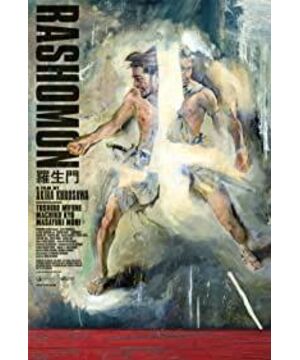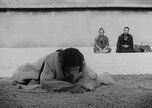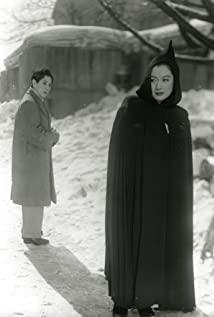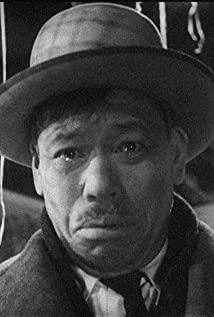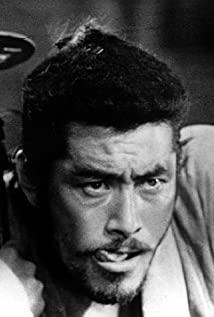The robber raised the samurai up, and he was able to fight with him twenty-three times, and he became great invisibly. He even said that he had sold the dagger to buy wine, showing that he was a very powerful robber, but he was actually very lost.
The woman does not tell the fact that she instigated the robber to kill the samurai, but weeps about what happened to her, fabricates the samurai's cruelty towards him, and shows her weakness.
Although it is said that "people who are dying, their words are also good". But the samurai, as a dead man, still had to lie, in order to preserve his own reputation. A samurai was humiliated and had to commit suicide by caesarean section.
Everyone lies and covers up the truth for their own gain and reputation.
Why do we think only the woodcutter told the truth? Because he has nothing to do with the parties and has no interests. But he only dared to talk to the monk, not to the judgement court, because then he would be involved. And he didn't dare to say the fact that he took the dagger.
The themes of Rashomon are obvious: the ugliness of human nature and a world of lies. However, there are too many movies about the so-called human nature. Can we avoid it by recognizing this ugliness?
Will I be raped on behalf of others after watching "Thirteen Hairpins"? Watching "The Tide" will guarantee you will not become a totalitarian thug? The answer, of course, is no. The weakness of human nature is that it is insurmountable, especially under extreme conditions.
So what do we need to do?
One method is moral indoctrination, to take lying as a sin and not to lie as the highest moral standard to pursue. Yet history has taught us that such moral standards are not binding, and that not everyone feels that the pursuit of self-discipline is worthwhile.
If we adhere to the principle of "it is related to our own interests, we may lie", "if I don't lie, I will be exposed. If my weaknesses are exposed, I will be shameless" and "What I do is not in line with the mainstream of society," said When I come out, they will definitely accuse me." Judging from these three logics, it is possible to find some ways to get out of Rashomon.
1. In an event that is unavoidably related to one's own interests, in order not to lie, it is necessary to reasonably judge the importance of this interest. You can try to take this interest as less important. In "Hidden Sword and Ghost Claw", the samurai can put down their dignity and take revenge by means of ninjas, and finally give up their identity as samurai, so why can't the samurai here? The robber can think that he is notorious for always getting caught, not to mention he is very good. Many of our seemingly important interests or reputations are not as important as we think.
2. There are internal and external reasons for our inability to face up to our own weaknesses. In our hearts, we care about the opinions and evaluations of others, and we cannot transform the self-esteem that depends on the evaluation of others into self-affirming self-esteem. In society, we do not tolerate the weaknesses of others. When a person makes mistakes, he needs to be given a chance to correct them. In this way, the success or failure of lying will be reduced. Even if I tell my mistakes, it will be fine. lie.
3. We can ask ourselves, "Why didn't I lie about this incident? Why didn't I lie about this detail?" Part of the reason comes from our affirmation of our own values. If a woman thinks, "Only the strongest man can have me", then she will not lie, but will defend herself. A society that affirms that it is different from the mainstream moral values of the society and allows the existence of dissent will undoubtedly reduce the cost of lying.
For the eternal proposition of human nature, people are still thinking about it, and it may never be broken, but we will gradually change, walk out of Rashomon, and move towards a "good" life.
View more about Rashomon reviews


